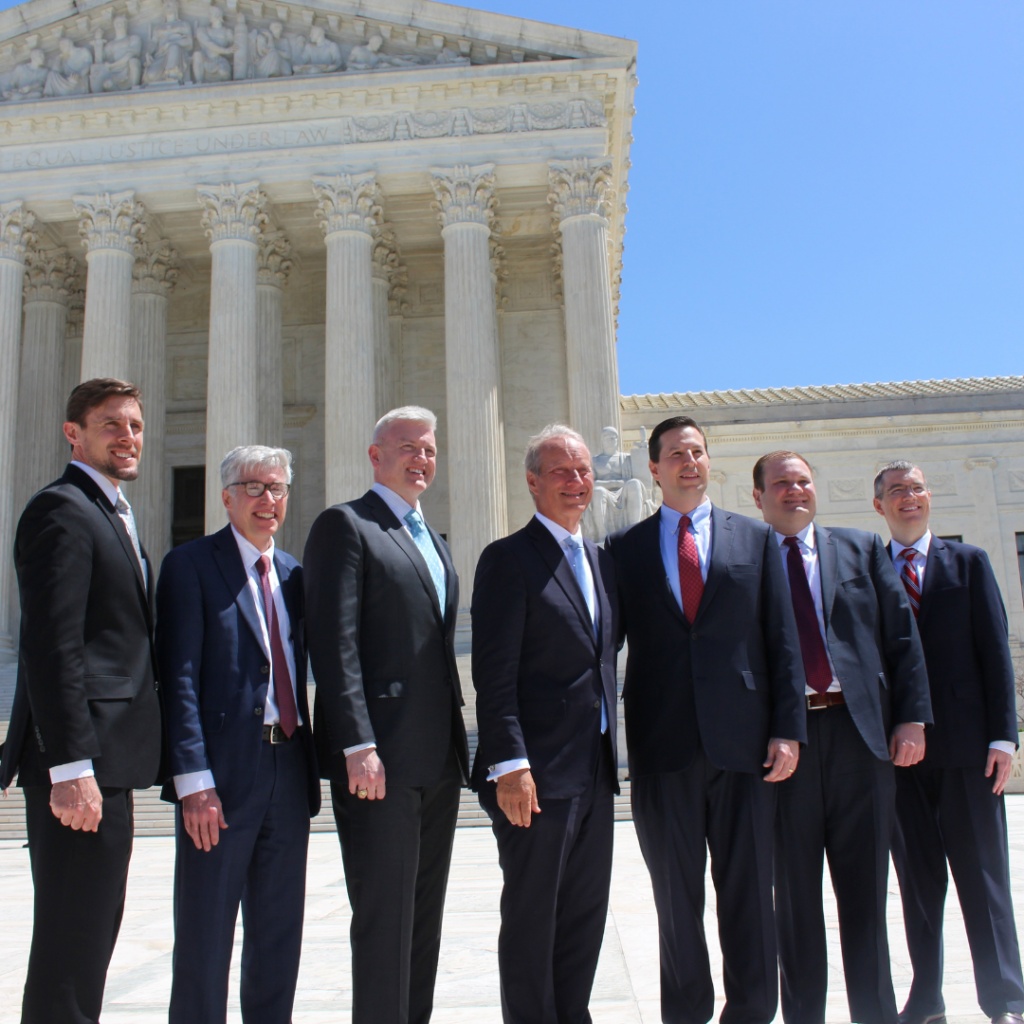October 2025
While Title IX has, for years, clearly permitted separate categories for males and females in athletics, activists began a coordinated effort to force entities to accept males on female teams. In response, in March 2020, Idaho Governor Brad Little signed the Fairness in Women’s Sports Act into law. Idaho was the first state to pass such a law, re-clarifying that its state law protects equal opportunities for women and girls in athletics. In 2021, West Virginia passed the Save Women’s Sports Act. By late 2025, about 27 states had passed similar laws to protect the rights of women and girls in athletics.
Lawsuits were filed challenging both Idaho’s and West Virginia’s laws, and Plaintiffs in both cases are seeking to force female athletes to compete against biological males in girls’ and women’s sports. Both of those cases went all the way to the US Supreme Court.
Independence Law Center filed an amicus brief in the Supreme Court on behalf of 55 Pennsylvania school board members from 21 Pennsylvania school districts that have passed policies to ensure that girls’ and women’s rights to safety, fairness, and opportunities in athletics are protected from male participation on female teams. Both Title IX and the Constitution recognize that, in limited circumstances, sex-based distinctions are not only permissible but necessary. Athletics and privacy facilities are among those contexts. Sex-separation ensures fairness and safety in sports, and it protects the fundamental right to bodily privacy in intimate settings such as locker rooms, showers, and restrooms.
The brief encourages the Court to resolve the issue nationwide in favor of women’s rights by recognizing that separating males from women’s teams and intimate spaces is necessary to comply with both Title IX and the Constitution. It explains:
While nondiscrimination principles work to erase most sex-based distinctions, sex-based separation in athletics and privacy facilities is still necessary. Attempts to conflate gender identity with sex cannot change the analysis, because the important interests in separation only apply to sex. Many advocates have misused the holding in Bostock v. Clayton County, 590 U.S. 644 (2020). But Bostock itself recognized it was not addressing “bathrooms, locker rooms, or anything else of the kind.” Id. at 681. The “but-for” test in Bostock applies only where sex-based distinctions are otherwise unlawful. Where, as here, the law expressly permits sex-based separation, Bostock provides no basis for separation based on gender identity. Schools have a duty to respect every student, including those who identify as transgender. But respect does not require erasing biological reality or dismantling the protections Title IX enshrines. Children should not be pressured to think that if they do not forgo athletic opportunities or undress in front of the opposite sex, they are expressing hate. Instead, it is gender ideologues that manipulate children— including trans-identifying children—with these lies. Policies separating students by sex in athletics and privacy facilities reflect long-standing constitutional and statutory principles, and they serve important community and governmental interests. The brief asks the Court to confirm that such distinctions are not only lawful but essential.




